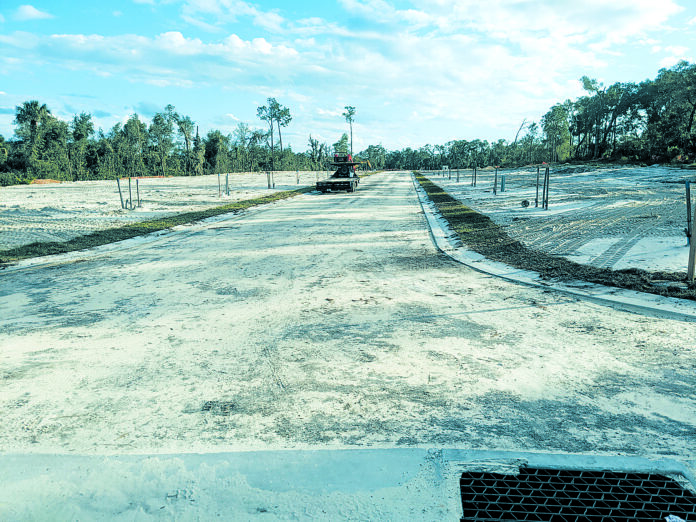
![]()
What’s our plan for a better DeLand, and how do we get there? A friend captured our worst fears in a few words: “We moved here because it wasn’t a sprawling mess, and now it is being turned into one.”
DeLand has it all: a strong sense of place, history, culture, a thriving Main Street, a lovely university with smart community-minded people, active citizens, a local newspaper, an idyllic location between river and sea, and good buildings and street patterns dating back to before urban sprawl. It’s the crown jewel of the River of Lakes National Scenic Byway. SunRail is coming — whether a boon or burden hinges on how well we connect and leverage its possibilities.
DeLand is the seat of a unique county with strong, smart elected officials and staff, a wealth of county- and state-funded trails and parks, and visionary programs like ECHO for help.
We have it all … and we could lose it all. We love our town, yet we seem intent on throwing our blessings under the wheels of unplanned growth, stumbling blindly toward sprawling developments, dwindling public spaces, traffic, congestion, pollution, inequity, isolated underserved areas, and environmental damage. Inexorably, irreversibly driving our once-charming town toward what we came to escape — “a sprawling mess.”
Do we want more nonlocal developers buying huge parcels, then slashing and burning our precious trees, flattening hills, and slamming up hundreds of indistinguishable houses in unsustainable car-centric developments? Wouldn’t we rather see local builders working within the existing development footprint for restoration, building and rebuilding — especially in sites close to Downtown or along transit corridors?
Walkable neighborhoods are the building blocks of sustainable cities, with well-connected streets, good pedestrian infrastructure, and shops and services within walking distance. Another friend remembers kids biking all over DeLand. Kids still do in some places — but not here.
Other towns are moving forward while we’re stuck in reverse. Cities around the country are employing new ideas and methods with old-fashioned common sense to create a more people-centric future.
Form-based codes focus on public spaces, streetscapes, diverse neighborhoods, mixed use, affordable, equitable housing and transportation that lets people live, work, shop and move as they choose.
Multimodal Mobility Plans make street networks better and safer for drivers, transit users, walkers and bicyclists. “Placemaking” concepts show how powerful collective vision can inspire us to reimagine and reinvent public spaces. We have great examples to follow right in our own state.
We love our town, but, with our current pace and direction, we won’t love it in 10 years. We’ll face crushing tax burdens, plus the expense of retrofitting current mistakes.
We’re at a tipping point. We have the opportunity, tools and resources to shift gears — do we have the political will? Let’s make sure our next elected officials have the vision, skills, courage, leadership and experience managing complexity (in short, the political chops) to shift direction — to chop what’s not working and build on what works.
Sure, it’s easier to settle for the path of least resistance, but we don’t want to “settle.” Let’s hope next month’s candidate forum asks hard questions and demands answers about things that matter most: a plan for managed growth, planned transportation and maintaining quality of life. Let’s choose candidates with the chops for change.
— Marguerite Ardito is the St. Johns River-to-Sea Loop Alliance president and a River of Lakes National Scenic Byway board member. She sees policies, infrastructure and attitudes that enable safe and equitable active mobility as key to sustainable quality of life for people and communities.
We should worry about all the new construction but on the other hand maybe we should be somewhat concerned with existing properties that code enforcement is having a blind eye or looking the other way. I have always thought maybe people who let their property go should pay higher taxes then those who take care of their property. I am just talking about keeping out junk cars,uncut grass and paint where needed.Take pride in what you have is what I am really saying.